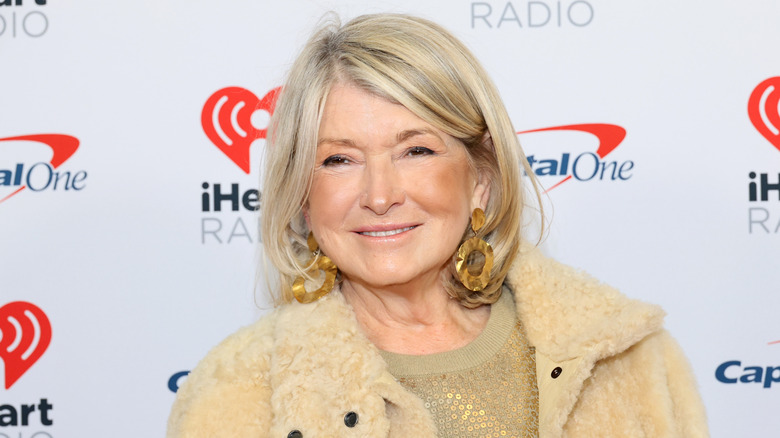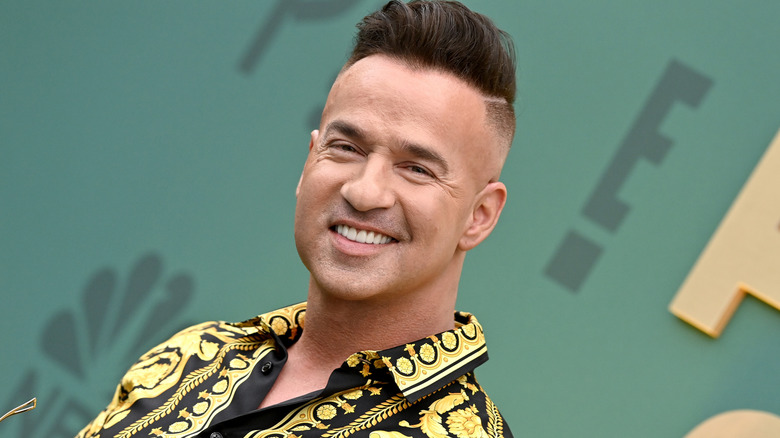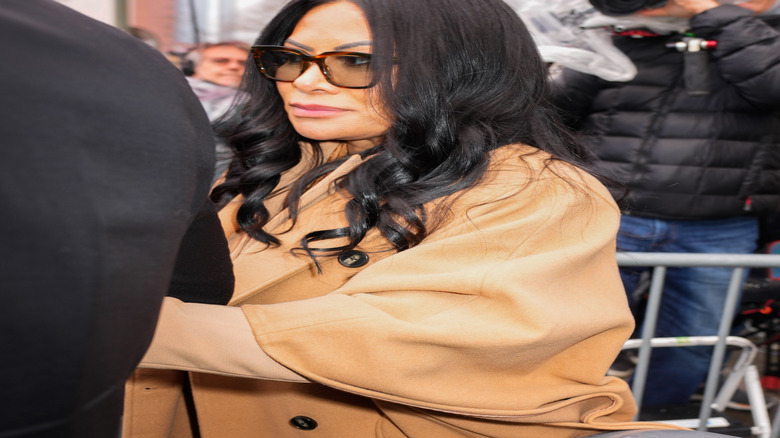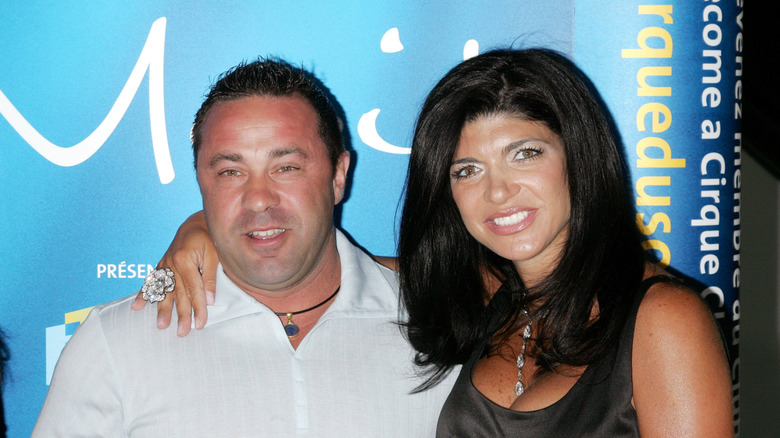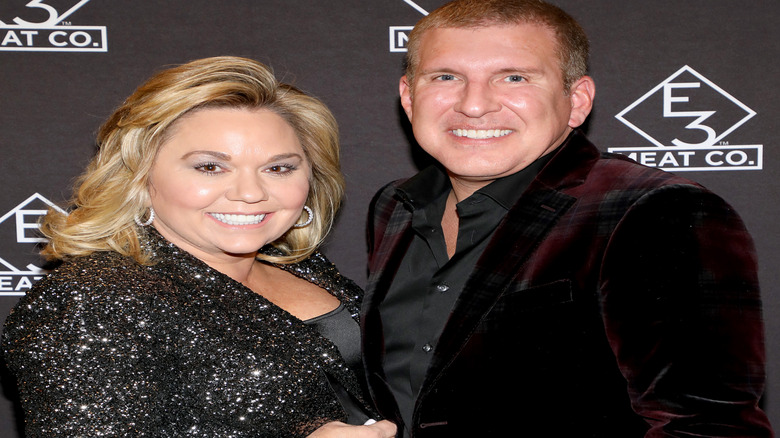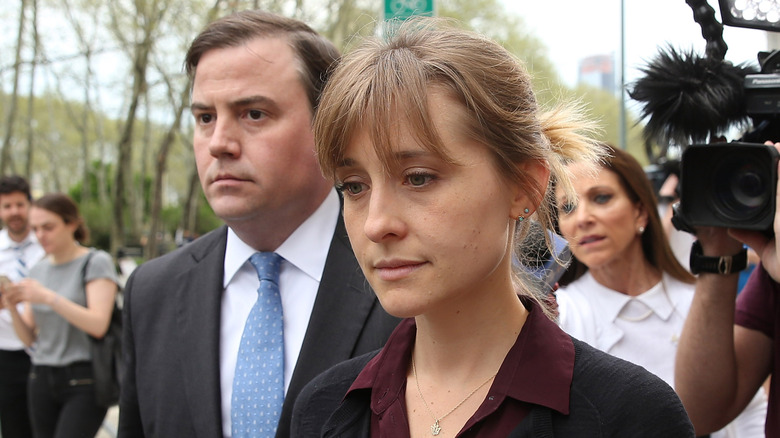The Worst Financial Crimes Committed By Celebrities
Celebrities sometimes get themselves caught up in the world of white collar criminality which, although non-violent in nature, can create undue hardship to themselves or others. Although there is a long list of celebrities arrested for any number of criminal acts — including violent crimes that harm others — they rarely face the maximum penalty for the crimes they commit. This special treatment is also known as celebrity privilege, which occurs when courts hand out far more lenient sentences for famous people's bad behavior than they do for the general public. These slap on the wrist punishments are usually influenced by the fame of the perpetrator, which can affect jury decisions, or the belief that celebrities are in fact targets for blackmail and extortion, providing built-in cover for accusations related to criminal acts. The flip-side of celebrity privilege is that pursuing charges against celebrities can be seen as an equal application of the law, even if the sentences are typically lighter for them.
According to author Ruth Penfold Mounce in her book "Cultural Criminology and the Joy of Transgression," there is a natural connection between celebrity and criminality. In the book, she describes this as criminal celebrity, "whereby criminals and deviants enter into a celebrated status, while celebrities can also transgress norms and laws." Whatever the reason, some of the worst financial crimes have been committed by celebrities. Here are a few of them.
Wesley Snipes: Willful failure to file federal income tax returns
While in theory a victimless crime, not paying your taxes is still very much a crime punishable by imprisonment in the U.S. Wesley Snipes found that out the hard way in 2008 after being convicted by a federal court for failure to file his taxes for the tax years 1999 to 2001. Snipes was handed a three-year federal prison term — equivalent to the number of years he failed to file — and spent December 2010 to April 2013 behind bars. While he was set free from prison in 2013, that still wasn't the end of his dues. Snipes spent the next few months, to July 2013, under house arrest. Likely a much nicer prison, but still. The actor's predicament highlights why it's a good idea to file your taxes early. Whether you're a celebrity or not, the difference between using an online tax service or hiring a professional is less important than just getting your taxes done on time, and correctly.
Snipes owed $7 million in back taxes, which seems like a large amount until you consider that he was earning $13 to $15 million per film for the Blade franchise, and lost the ability to make more over the three years he was out of commission. We'll never know what his earning potential could've been, which is a shame, since there are several ways to legally avoid paying taxes and boost your career at the same time.
Martha Stewart: Obstruction of justice and lying to federal investigators
Martha Stewart is a legend whose fame as a domestic goddess was marred by federal charges for financial crimes committed at the height of her fame. Her 2004 conviction for conspiracy, obstruction of justice, and fibbing to investigators shocked the world, and her five-month stint in a federal prison included a $30,000 fine. Stewart would spend five more months under house arrest and two years under supervised release. This could have been much worse had she been indicted for the original charge of securities fraud, however, the judge in the case dismissed it.
Stewart's legal issues stemmed from the trade of a pharmaceutical company — ImClone — made back in December 2001 by her stockbroker. Her broker was tipped off by his assistant about the company's CEO selling shares of the company after the Federal Drug Administration (FDA) decided an ImClone cancer drug didn't make the grade. After receiving that news, Stewart sold 3,928 shares of the company, narrowly avoiding a share price slide of $60 to $46. According to the Securities and Exchange Commission (SEC), this would've resulted in a loss of $45,673 on $227,000 worth of stock. When questioned about the sale by the SEC, Stewart lied, claiming that an agreement existed with her broker to sell if the stock ever fell below $60.
Mike 'The Situation' Sorrentino: Tax evasion
If you were a fan of "Jersey Shore" you'll recognize this next celebrity as Mike "The Situation" Sorrentino. Sorrentino got himself into a bit of a situation in January 2014, when he was charged for failure to pay taxes on $8.9 million worth of income generated between 2010 and 2012. You would think that would be enough, however, Sorrentino ended up in hot water again in 2017 for attempting to obscure his earnings with the help of a sibling. This all came at a cost to Sorrentino of eight months in prison, including another two years of probation in which he was expected to do 500 hours of community service.
As per the U.S. Department of Justice, Sorrentino and his brother, Marc Sorrentino, attempted to hide money from the tax man by depositing amounts under $10,000 into multiple accounts, hoping to avoid the scrutiny of the IRS. They were able to do this through shared business ventures and business accounts, which is not how savvy millionaires avoid paying taxes without breaking the law. In addition to the prison term and probation, Sorrentino earned himself a $10,000 fine, and was also ordered to pay $123,913 in restitution. His brother Marc also went along for the ride, with a 24-month stay in federal prison.
Jen Shah: Conspiracy to commit wire fraud
If you are a fan of Bravo television series "The Real Housewives of Salt Lake City" then you'll recognize our next celebrity. Jen Shah broke the law by engaging in a telemarketing scheme targeting the elderly. These schemes are a financial scam senior citizens need to be aware of as evidenced by the length of time Shah was running the nationwide scheme — from 2012 to 2021 — and how many victims she accrued over that time. Shah convinced senior citizens to invest in fraudulent businesses and services that included help with tax assessments and web design. Even worse, she bilked seniors repeatedly, double dipping and re-victimizing her targets as many times as she could.
Phone scammers have tricked people out of an outrageous amount of money, and although Shah avoided a harsher sentence of 30 years in prison, the judge still gave her six and a half years imprisonment with an extra five years under supervised release. Shah will also have to cough up $6.6 million in restitution, hand over an additional $6.5 million, and over 100 luxury items purchased from ill gotten gains. In case you feel sorry at all for Shah, as per ABC News, text messages recovered by investigators revealed Shaw often made jokes about how easy it was to steal money from her elderly victims. Classy.
Teresa and Joe Giudice: Tax evasion, mail, wire and bankruptcy fraud
Teresa and Joe Giudice of "The Real Housewives of New Jersey" also got themselves into serious legal trouble in 2013 after being indicted on bankruptcy fraud, conspiracy to commit mail and wire fraud, and failure to file their taxes — which is something that can happen if you're audited by the IRS. The specifics of their financial crimes include applying for loans with false information and documents for loans including mortgages. To do this, the Giudice's employed fraudulent pay stubs and W2s. Teresa Giudice even pretended to be an executive administrator on one occasion and a realtor making $15,000 per month on another to swindle $121,500 to $361,250 in mortgage loans respectively. These are the sort of shady practices that can land realtors in jail. Where their taxes are concerned, Joe Giudice failed to file taxes between 2004 and 2008 for $996,459 worth of income. Finally, the couple made bankruptcy claims on their loans that were entirely fabricated, even hiding the income made from television, property rentals, personal businesses, and appearances.
By October 2014, Teresa Giudice was being sentenced to 15 months in prison, while Jo Giudice was given 41 months in prison with a deportation order back to Italy at the conclusion of his time. The couple also had to undergo two years of supervised release and be on the hook for $414,588 in restitution and $18,000 in fines between them.
JaRule aka Jeffrey Atkins: Failure to file tax returns
Rapper JaRule, aka Jeffrey Atkins, learned the difference between tax avoidance and tax evasion the hard way after a court found him guilty of the latter in 2011. While probably better known for his part in the infamous Fyre Festival debacle — he was ultimately found not responsible for — Atkins had nobody else to blame for not filing five years of taxes totaling over $3 million in earnings. The failure to file and pay his taxes between the 2004 to 2008 tax years meant the government incurred an estimated loss of just over $1.1 million. So unsurprisingly, along with the 28 month prison sentence, Atkins was ordered to pay the IRS $1.1 million in back taxes. As the sole owner of his company ASJA and Rule Tours Incorporated, Atkins continued to earn money through tours, music royalties, and performances he was remiss to file.
In May 2013, Atkins was granted early release from prison. However, he was placed under house arrest to complete the remainder of his prison term, where he was confined to his home until July of the same year.
Todd and Julie Chrisley: Bank fraud and tax evasion
Apparently, the USA network's "Chrisley Knows Best" stars, Todd and Julie Chrisley, didn't know best when it came to not breaking the law. Between 2007 and 2012, the Chrisleys lied to several independent banks about their net worth in order to make off with over $30 million in loans. New loans would pay for the old ones, until a 2012 bankruptcy claim initiated by Todd Chrisley allowed the couple to basically write off some $20 million dollars worth of loans. In addition to bank fraud, the Chrisley's also tried their best to avoid paying their fair share of taxes by hiding millions of dollars in earnings with the help of an employee who would later testify against them in exchange for immunity.
Although the Chrisley's claimed they had no knowledge of what their ex-employee was doing in their name, enough evidence must have been presented to prove otherwise. Todd Chrisley received a 12-year prison sentence, and Julie Chrisley was sentenced to a seven-year term. In 2023, the couple's sentences were reduced, with Julie Chrisley's seven year sentence lowered by 14 months and Todd Chrisley's sentence being reduced by almost two years. In what must have felt like an extraordinary stroke of luck, a judge overturned Julie Chrisley's original seven year sentence over a lack of evidence. Any celebration would be short-lived however. In September 2024, another judge decided that the original prison sentence was valid, and sent her back to finish out her prison term.
Several celebrities: Failure to disclose paid endorsement
With Bitcoin's 16th anniversary causing everyone to wonder what a $100 investment in Bitcoin in 2009 would be worth today, and the general interest in cryptocurrencies rising, it's a given that celebrities would eventually get in on the action. Eight celebrities — Lindsay Lohan, Jake Paul, Soulja Boy, Lil Yachty, Ne-Yo, and Akon — did just that and ended up in legal trouble over it. According to the U.S. Securities and Exchange Commission (SEC), crypto entrepreneur Justin Sun offered unregistered crypto assets through three companies — BitTorrent Foundation Ltd., Rainberry Inc., and Tron Foundation Limited — in order to engage in wash trading. Wash trading allows for the concurrent sale and purchase of crypto assets in order to have the appearance of a trade, without there being any actual trade in ownership. Sun also inflated the value of the assets' trading volume, generating $31 million in illegal, unregistered sales.
According to CNN, Sun employed celebrity influencers to endorse his company's crypto tokens, who themselves didn't disclose they were being paid to do so. For instance, Lindsay Lohan was paid $10,000 for her endorsements, while Logan Paul was paid $25,000 for his. When it was all said and done, the SEC sued Sun for "failing to properly register crypto securities, manipulating markets and failing to disclose paid relationships with the celebrities." The celebrity influencers who promoted a shady crypto scam were also fined $400,000 in total, and made to pay back what they were paid for their endorsements.
Doug DeCinces: Insider Trading
Doug DeCinces, former Major League baseball player for the Baltimore Orioles and California Angels, caught the attention of the feds and ended up in one of the most outrageous insider trading busts in celebrity history. While there are upsides to being friends with a CEO, DeCinces is an example of how that kind of relationship can create problems. If that friend should give you inside information about their company — in this case, Advanced Medical Optics — particularly about an upcoming acquisition likely to cause that company's share price to skyrocket, that's a big problem for the SEC. The company's purchase by Abbot Labs made investor DeCinces around $1.3 million. To make matters worse, DeCinces also tipped off family members who also pocketed another million.
After a two month trial in 2017, a jury of DeCinces' peers found him guilty of 14 counts of insider trading. DeCinces, 66 years old at the time of his first trial, narrowly avoided living out the rest of his senior years in prison at his sentencing hearing in 2019. DeCinces was aided by a pile of letters from associates, friends, family, and charities who vouched for his character. DeCinces paid the SEC $2.5 million to settle the case, and was sentenced to eight months' home confinement.
Felicity Huffman: Fraud
It's safe to say, most parents want their children to get a good education and excel at life. Some parents want that so bad for their children, they're willing to break the law. That was the case for actor Felicity Huffman, who got caught up in a college admissions scandal after paying a college exam proctor $15,000 to alter her daughter's scores. While the average parent is busy pushing their children to chase college degrees most likely to pay off or researching college saving rules parents may not know about, Huffman was paying to raise her daughter's SAT scores by a quite significant 400 points. Huffman, speaking of her arrest experience in People said, "They came into my home. They woke my daughters up at gunpoint — then they put my hands behind my back and handcuffed me and I asked if I could get dressed." Initially believing it to be a joke, Huffman found out quickly that she was swept up in a very real federal investigation called "Operation Varsity Blues."
Huffman was convicted for conspiracy to commit mail fraud and honest services mail fraud. For her crime, she spent 11 days in prison, had to complete 250 hours of community service, and was fined $30,000.
Allison Mack: Racketeering
Allison Mack of Superman television series "Smallville" not only ended up in prison for her role in recruiting women for the cult Nxivm, but also for the financial crime of racketeering and conspiracy. She could have spent 17 years in prison for her actions but received a lighter sentencing — she served two years — due to her assisting federal investigators in bringing down the cult. Racketeering relates to the root word racket, and basically encapsulates anything related to a scheme or racket that illegally enriches someone, and can involve anything from extortion or bribery to kidnapping and money laundering. Thanks to RICO laws, any direct or indirect participation in these actions can land you a racketeering charge. Mack participated in this by using compromising photos of women she recruited to compel them to stay in the cult, and do as the cult leaders asked.
According to court documents, NXIVM was a pyramid scheme that hustled students into paying thousands of dollars for useless self-help courses, with the false hope of getting to a level where they could begin making commissions for other students they recruited.


